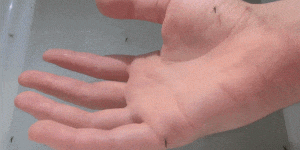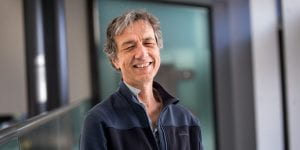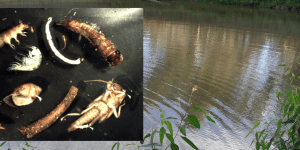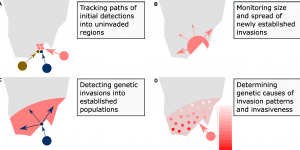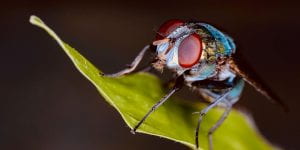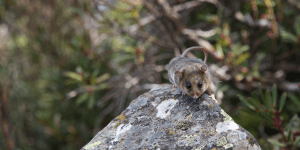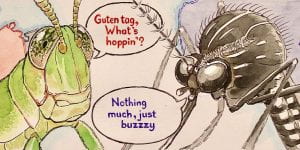pearg
-
Finding a common name for the matchstick grasshopper Vandiemenella viatica
Loading…blogs.unimelb.edu.au/pearg/2021/10/20/finding-a-common-name-for-vandiemenella-viatica
-
Male mosquitoes don’t want your blood, but they still find you very attractive
Original article published in The Conversation The Conversation Perran Ross, The University of Melbourne The whine of the mosquito is unpleasant and often inescapable outdoors on summer evenings. Mosquitoes track you down from tens of metres away by sensing carbon dioxide in the air you breathe out. Within seconds, they home in on exposed skin […] -
Melbourne Laureate Professor Ary Hoffmann | La Trobe University Distinguished Alumni Award winner
Ary’s alma mater, La Trobe University, have recognised his achievements with an award and a nice profile article here. There’s also a video interview -
Improving mosquito control strategies with population genomics
Words: Tom Schmidt When researchers want to investigate evolutionary processes like adaptation and dispersal, they frequently make use of population genomic methods. Population genomics uses DNA data from across an organism’s entire genome – that is, across all of that organism’s DNA. This DNA data can be compared with DNA from other organisms, which can […]blogs.unimelb.edu.au/pearg/2021/06/28/improving-mosquito-control-strategies-with-population-genomics
-
Fly infertility shows we’re underestimating how badly climate change harms animals
Belinda van Heerwaarden, The University of Melbourne and Ary Hoffmann, The University of Melbourne Evidence of declining fertility in humans and wildlife is growing. While chemicals in our environment have been identified as a major cause, our new research shows there’s another looming threat to animal fertility: climate change. We know animals can die when […] -
Variety is the spice of life… and key to saving wildlife
“This article was first published on Pursuit. Read the original article.” Dr Andrew Weeks and Professor Ary Hoffmann In the critical battle against extinction, conservationists use a variety of tactics to try to save species. One of the most fundamental tools is maintaining the amount of variation of genetic material (DNA) in a group of […]blogs.unimelb.edu.au/pearg/2021/06/10/variety-is-the-spice-of-life-and-key-to-saving-wildlife
-
Male fertility ‘precariously close’ to climate change extinction limits
The loss of fertility in males as a result of climate change, particularly in the tropics, may be a better predictor of vulnerability to extinction by Dr Belinda van Heerwaarden This article was first published on Pursuit. Read the original article As temperatures rise across the globe, species will increasingly face environmental conditions beyond their […] -
The complexities of predicting climate change effects
This article was first published on Pursuit. Read the original article. Words: Dr James Camac, Nicholas Bell and Professor Ary Hoffmann We currently face significant challenges to accurately predict the impacts of our changing climate on individual species, as well as their ecosystems. A recent report on the demise of an area of snow gums […]blogs.unimelb.edu.au/pearg/2021/03/31/the-complexities-of-predicting-climate-change-effects
Number of posts found: 112

